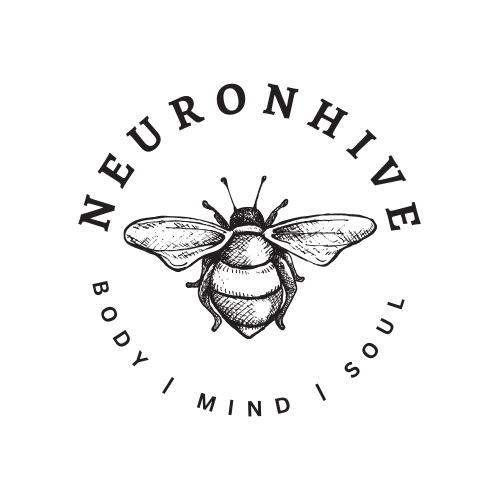Discover the top herbal nootropics that provide natural cognitive support to boost focus, memory, and mental clarity. Explore plant-based supplements and organic brain boosters to help you perform at your best.
Introduction
As the demand for nootropics (brain-boosting supplements) grows, many people are turning to herbal and plant-based options for a more natural approach to cognitive support. From ancient Ayurvedic remedies to traditional Chinese herbs, these botanicals have long been revered for their potential to enhance memory, improve focus, and reduce stress. In this guide, we’ll explore the best herbal nootropics—offering insights into their benefits, research-backed effects, and tips on how to integrate them into your routine.
1. Bacopa Monnieri (Brahmi)
Key Benefits:
- Memory Enhancement: Research suggests that bacosides, the active compounds in Bacopa, may support better memory formation and retention.
- Stress Reduction: Bacopa is known for its adaptogenic properties, helping reduce cortisol levels and promoting a calmer mental state.
How to Use:
- Standardized Extracts: Look for products containing at least 20% bacosides.
- Dosage: Often ranges between 250–500 mg per day, taken with a meal to enhance absorption.
Potential Side Effects:
- Mild digestive issues or drowsiness in some individuals.
- Start with a low dose to gauge your tolerance.
2. Ginkgo Biloba
Key Benefits:
- Improved Blood Flow: Ginkgo is widely studied for its ability to enhance cerebral circulation, potentially boosting oxygen and nutrient delivery to the brain.
- Memory and Focus: Many users report sharper focus and better short-term memory, making Ginkgo a popular choice for students and busy professionals.
How to Use:
- Extract Form: Standardized to 24% flavone glycosides and 6% terpene lactones.
- Dosage: Typical daily amounts range from 120–240 mg, split into one or two doses.
Potential Side Effects:
- Rare cases of stomach upset or headaches.
- Caution advised if you’re on blood thinners or have bleeding disorders.
3. Rhodiola rosea
Key Benefits:
- Stress Response: Rhodiola is an adaptogen that helps the body cope with mental and physical stress.
- Enhanced Mental Stamina: Users often report reduced mental fatigue and increased alertness, especially during stressful tasks or long work hours.
How to Use:
- Standardized Extracts: Look for products containing 3% rosavins and 1% salidroside.
- Dosage: Anywhere from 100–400 mg daily, best taken in the morning or early afternoon.
Potential Side Effects:
- Mild jitteriness or restlessness if taken in high doses.
- May interfere with sleep if taken late in the day.
4. Lion’s Mane Mushroom (Hericium erinaceus)
Key Benefits:
- Neuroprotective Properties: Lion’s Mane contains compounds called hericenones and erinacines that may stimulate nerve growth factor (NGF), aiding neural health.
- Cognitive Support: Often praised for enhancing mental clarity, concentration, and mood regulation.
How to Use:
- Powder or Capsules: Standardized extracts are popular and easy to incorporate.
- Dosage: Between 500–1,000 mg of a concentrated extract, taken once or twice daily.
Potential Side Effects:
- Generally well-tolerated, but occasional reports of digestive upset or skin rashes.
- Consult a healthcare professional if you have mushroom allergies.
5. Ashwagandha (Withania somnifera)
Key Benefits:
- Stress and Anxiety Reduction: Ashwagandha is an adaptogen known to help balance cortisol levels, promoting a calmer mindset.
- Support for Cognitive Function: Some studies suggest it may improve memory and executive function, particularly under stress.
How to Use:
- KSM-66 or Sensoril Extracts: These patented forms are standardized for consistent potency.
- Dosage: 300–600 mg per day, often split into morning and evening doses.
Potential Side Effects:
- Mild drowsiness or upset stomach.
- Avoid if you have hyperthyroidism, unless advised by a healthcare professional.
6. Gotu Kola (Centella asiatica)
Key Benefits:
- Brain Circulation: Traditionally used to support healthy blood flow to the brain, which can enhance mental clarity and focus.
- Calming Effect: May help reduce anxiety and mild insomnia, supporting overall mental well-being.
How to Use:
- Tea or Capsules: Gotu Kola is commonly available in tea form or standardized extracts.
- Dosage: 200–500 mg of extract or 2–3 cups of tea per day.
Potential Side Effects:
- Generally mild, but high doses could cause headaches or dizziness.
- Seek medical advice if you’re pregnant or nursing.
7. Holy Basil (Tulsi)
Key Benefits:
- Stress Modulation: Holy Basil is often used in Ayurveda for its adaptogenic qualities, helping to balance mood and energy levels.
- Antioxidant Support: Rich in antioxidants, which can protect brain cells from oxidative stress.
How to Use:
- Tea or Tincture: Widely available in health food stores.
- Dosage: 300–500 mg of standardized extract or 1–2 cups of Tulsi tea daily.
Potential Side Effects:
- May lower blood sugar; monitor if you have diabetes.
- Consult a healthcare provider if taking blood-thinning medications.
Tips for Maximizing Herbal Nootropic Benefits
- Combine with a Balanced Lifestyle
- Proper sleep, exercise, and a nutritious diet can amplify the effects of herbal nootropics.
- Start Low and Slow
- Introduce one supplement at a time and begin with the lowest effective dose to gauge tolerance.
- Monitor and Adjust
- Keep a journal of your intake, noting improvements or side effects. Adjust dosages or timing as needed.
- Consult a Healthcare Professional
- Especially important if you’re pregnant, nursing, on medication, or managing a chronic health condition.
Frequently Asked Questions (FAQ)
1. How long does it take to see results from herbal nootropics?
- Most herbal nootropics may require 2–8 weeks of consistent use to yield noticeable cognitive benefits.
2. Can I combine multiple herbal nootropics in a single regimen?
- Many people do. However, it’s wise to add them one at a time to monitor how each affects you individually and avoid potential interactions.
3. Are herbal nootropics safe for long-term use?
- Many are considered safe for extended usage, but it varies by herb and individual health status. Periodic breaks or rotations (cycling) can be beneficial.
4. Do I need to take these herbs with food?
- Some herbs, like Bacopa, may be fat-soluble, making them more effective when taken with a meal containing healthy fats. Check label recommendations or consult a professional.
5. Can herbal nootropics replace prescription medications?
- Herbal supplements should not replace professional medical advice or prescription treatments. Always talk to a doctor if you have severe or persistent cognitive or mood-related issues.
-

Which Supplements Are Good for Skin? A Comprehensive Guide
-

Can Supplements Cause Weight Gain? An In-Depth Exploration
-

What Nootropics Actually Work? An In-Depth, Evidence-Based Guide
-

Will Nootropics Fail a Drug Test? A Factual Overview
Conclusion
Herbal nootropics offer a natural, plant-based route to cognitive support—providing benefits like improved memory, stress reduction, and enhanced focus. From Bacopa Monnieri to Lion’s Mane, these organic brain boosters work best when paired with healthy lifestyle choices and used consistently over time.
If you’re considering adding any of these herbal nootropics to your regimen, remember to start low, track your progress, and consult a healthcare professional for personalized guidance. By combining nature’s pharmacy with mindful habits, you can cultivate a more resilient, sharper mind for work, study, and daily life.
Disclaimer: This article is for informational purposes only and should not be taken as medical advice. Always consult a qualified healthcare provider before making changes to your supplement or healthcare routine.




